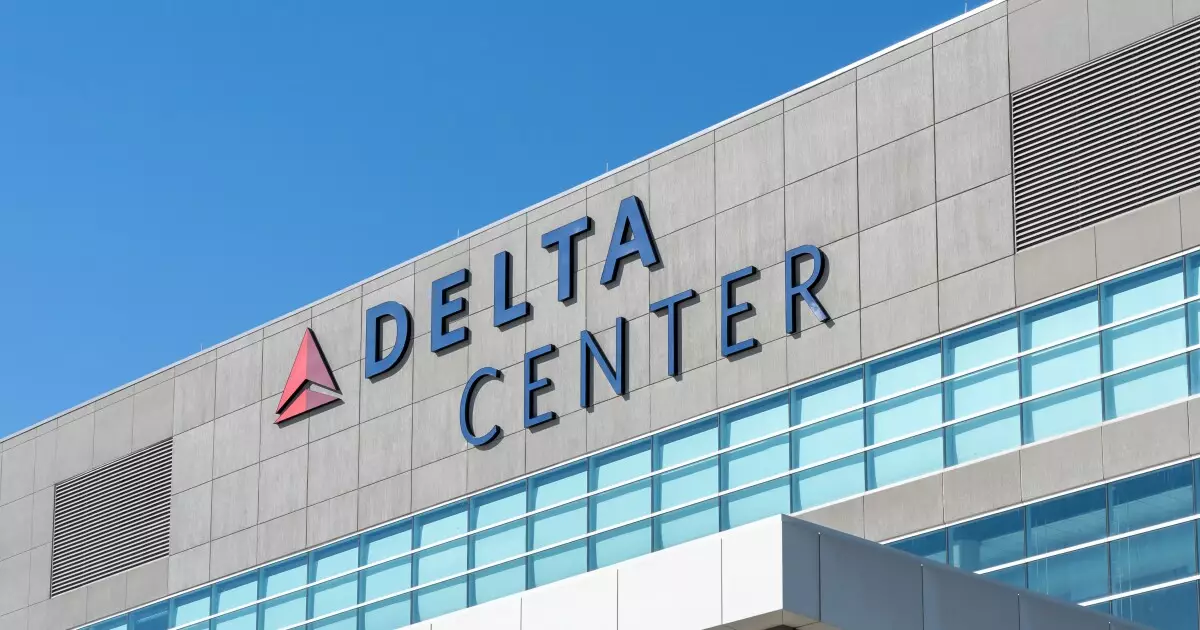Salt Lake City is gearing up for a momentous occasion as it prepares to enter the municipal bond market, unveiling a staggering $900 million sales tax revenue bond issue. This financial venture aims to revamp the Delta Center, the city’s professional sports arena, and address vital infrastructure improvements downtown. Goldman’s command over this deal positions it as a critical player in the burgeoning financial landscape, while local bonds are touted to be exempt from federal and Utah income taxes. But despite the sheen of progress, this ambitious proposal raises concerns about fiscal responsibility and the future trajectory of local governance.
The deal comes on the back of a recent Utah law that sanctioned this kind of debt issuance explicitly to accommodate an NHL team. While it appears that the city council has moved swiftly in their approval—authorizing an increase of 0.5% to the existing sales tax rate to fund the bonds—one must pause to consider the underlying implications of such a decision. Isn’t it troubling to behold a government entity muscling up to the taxpayer with a binding obligation to repay almost an entire billion dollars based on ambitious projections? The projected $1.2 billion revenue over 30 years sounds enticing, but this rosy forecast could quickly turn dismal if the expected economic growth falters.
Pawns in a Game: The Risks of Short-Sighted Planning
A significant portion of the bond proceeds—up to $525 million—will be directed toward the Delta Center renovations, serving the dual purpose of hosting basketball and hockey games. However, one must argue whether such immense spending is truly justified in a world awash with financial uncertainty. The council’s decision to forge ahead with the upgrades means committing tax revenue to an initiative that may not draw the audience it anticipates.
Analysts expect that a move by either professional sports franchise out of Salt Lake City could significantly impact the local economy, especially in a new environment where competition for entertainment dollars has never been fiercer. Pat Luby’s assertion of potential challenges in keeping these teams tethered to Salt Lake City raises a red flag. Why are we so willing to gamble taxpayer money on such volatile assets? In an era marked by unpredictable economic tides and competition for consumer spending, Salt Lake City’s bet feels precarious.
Moreover, fiscal prudence hinges on a delicate balance between ambitious development and the harsh realities of economic downturns. Howard Cure, a municipal bond analyst, poignantly highlights the question of whether the $900 million will sufficiently cover all improvements. Should the funding fall short, who will be left holding the bag? Taxpayers, once again, could face the consequences of overly optimistic projections and abysmal planning—a scenario that should send shudders through any fiscally conscious citizen.
Evaluating Worth: The Value of Sports and Community
Critics must also question the broader consequences of investing large sums into sports facilities. While arenas can drive local business, one cannot ignore the limitations inherent in such investments. Community assets like the Delta Center should serve more than just a niche market. They must resonate broadly with the public, enhancing community spirit and serving various demographics within Salt Lake City. Perhaps it’s time to rethink our definition of ‘value’ in regards to entertainment. If a sports arena primarily boosts a transient crowd while neglecting the needs of residents, is it truly a worthwhile investment?
The Delta Center’s planned transformation into a state-of-the-art venue underscores the city’s ambition. However, residents may push back against the notion of their tax dollars being funneled into an arena that serves corporate interests more than community needs. The inquiries surrounding the infusion of public funds into private profit motives reflect a larger, nationwide concern about the role of government in championing local sports—essentially sealing the fate of taxpayer dollars in the hands of a few stakeholders who might not prioritize the community.
Final Thoughts: The Future of Salt Lake City’s Economy
As Salt Lake City strides into the unknown territory of $900 million in municipal bonds, it beckons a critical analysis of long-term economic strategy versus short-sighted gains. Are we truly willing to risk community funds in a landscape littered with failed fiscal bets? At a time when we should be weaving our resources into broader community initiatives, this bold move risks creating more questions than answers. If the underlying economics do not materialize, the repercussions could reverberate far beyond the boundaries of the Delta Center, affecting the financial fabric of Salt Lake City for generations to come.
Ultimately, this transaction must be viewed through a lens of healthy skepticism. While potential growth looms on the horizon, it’s essential to remain cautious—a lesson that history has taught us time and again about the volatility of public finance and the necessity of prioritizing tangible community value.

